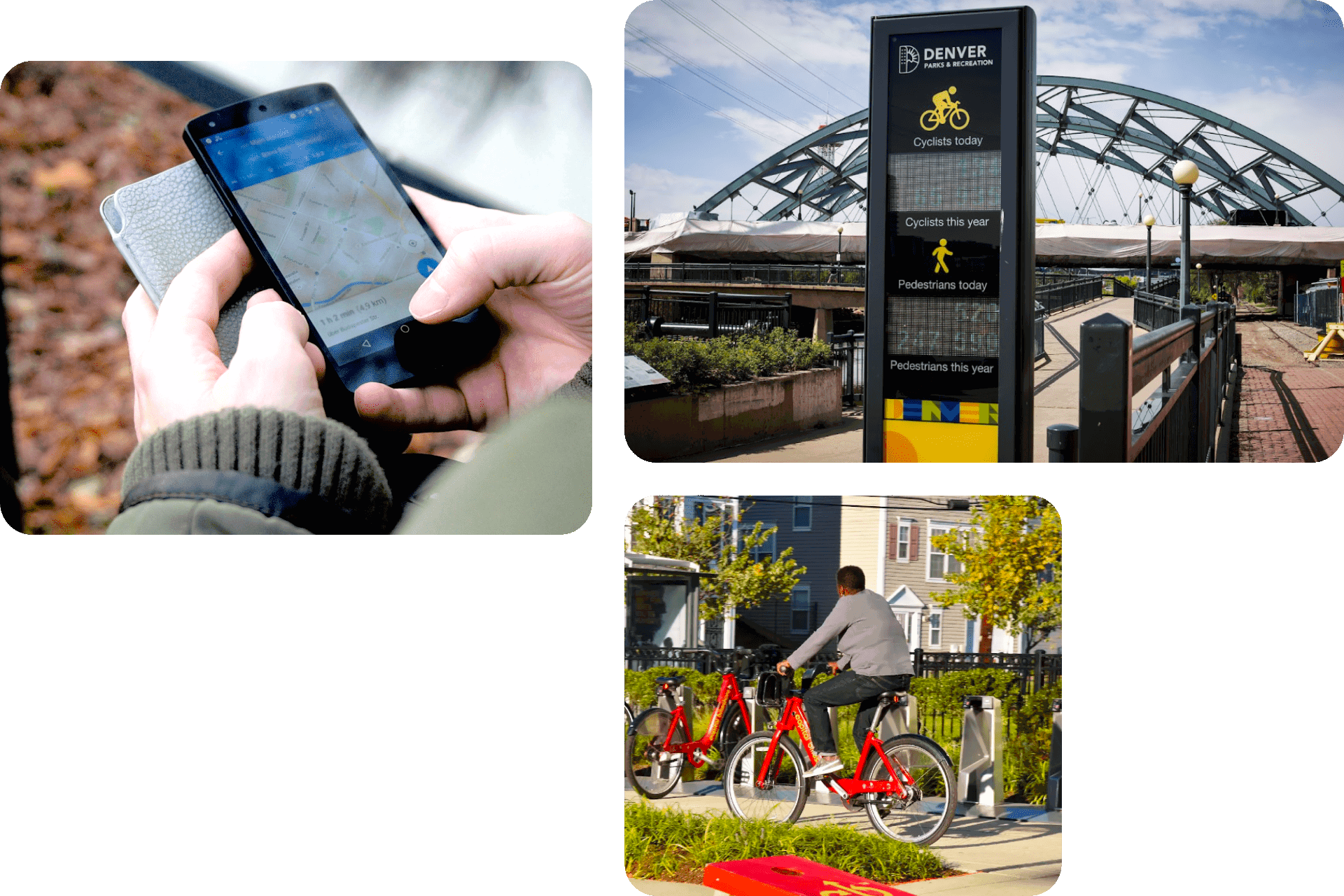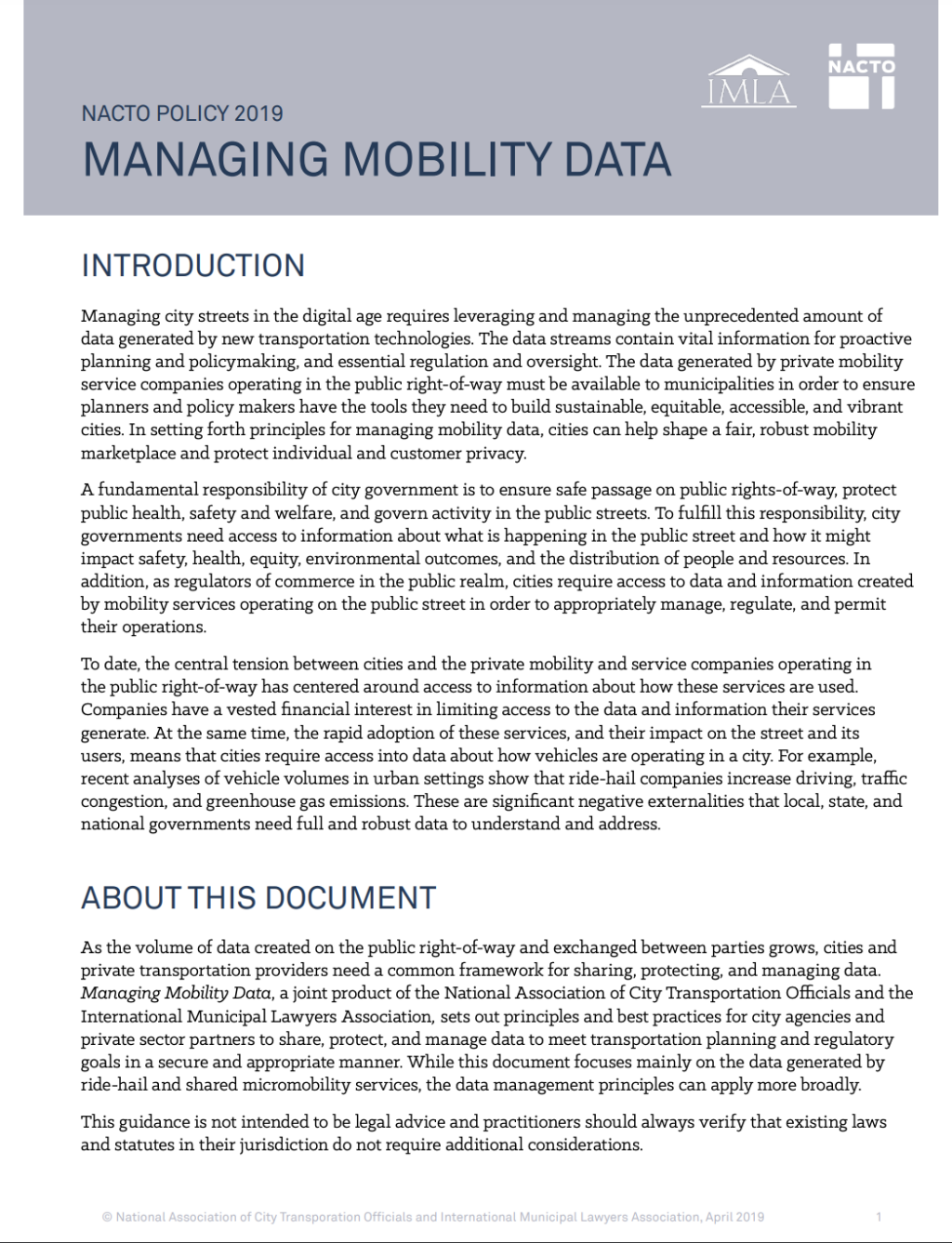New transportation technologies are generating unprecedented amounts of data. Information on where people are traveling, and how, can help cities understand their streets, proactively plan for changes, and better manage the public right-of-way.
To appropriately manage, regulate, and permit the operations of ride-hail services and shared micromobility on public streets, city governments must have access to data generated by private mobility companies. But both cities and private companies must take steps to safeguard data and ensure that individual privacy—a foundation of democratic society—is protected.
NACTO and its members have developed core principles for managing mobility data:
- Data Is a Public Good: Cities require data from private vendors operating on city streets to ensure positive safety, equity, and mobility outcomes on streets and places in the public right-of-way.
- Data Should Be Protected: Cities and private companies should treat geospatial mobility data as they treat personally identifiable information (PII).
- Data Should Be Collected Purposefully: Cities should be clear about when, why, and what data is necessary for planning, analysis, oversight, and enforcement purposes.
- Data Should Be Portable: Open data standards help cities and private companies to share data in universal formats, enabling cities to use data from multiple sources, and supporting innovation in both the public and private sectors.

Policy Guide
NACTO and IMLA Guidelines for Managing Mobility Data
Principles and best practices for city agencies and their private partners to share, protect, and manage mobility data.

